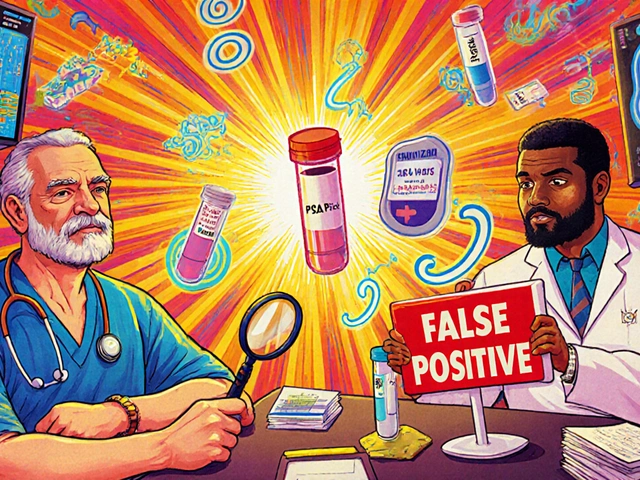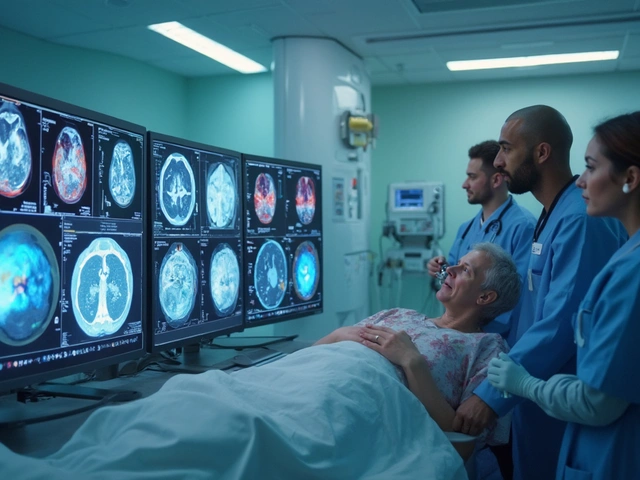Ever thought about what happens when Levothyroxine doesn't quite do the trick for your thyroid woes? You're not alone. Many folks are looking for alternatives that can either boost their thyroid game or just add a little extra support. And honestly, isn't it nice to know you have options?
First up on our list of contenders are some natural alternatives. Now, this isn't about going rogue and ditching your meds. Instead, think of these as sidekicks to your thyroid's superhero. We're talking about supplements like selenium, vitamin D, and iodine, which have been buzzing around in the wellness community for a while.
Pros
- May enhance overall thyroid health.
- Low risk of side effects when used appropriately.
Cons
- Not a substitute for medication.
- Limited evidence for treating hypothyroidism.
- Potential interactions with thyroid hormones.
If you're curious about how these could work for you, it might be worth having a chat with your healthcare provider. They're the best resource for figuring out if these fit into your thyroid care game plan.
Natural Alternatives (Supplements)
When it comes to thyroid health, sometimes you need a little extra something to help things along. That's where natural Levothyroxine alternatives come in handy. They're not here to completely replace your meds, but rather to complement them.
So, let's dive into some of the big players in the world of thyroid support supplements:
- Selenium: This little mineral has quite the reputation. It's like a tiny powerhouse for your thyroid. Studies show it can help boost thyroid function and even protect against certain thyroid diseases. Just don't go overboard; too much can be harmful.
- Vitamin D: Known as the sunshine vitamin, it's more than just mood support. It plays a role in regulating your immune system, and there's some evidence linking vitamin D deficiency to thyroid issues. A decent dose might be beneficial if you’re running low.
- Iodine: The thyroid gland loves this stuff since it's essential for making thyroid hormones. But here's the catch: while it's crucial, too much or too little iodine can throw your thyroid off balance. It's a fine line, and one you should discuss with your healthcare provider.
These supplements might nudge your thyroid in the right direction, especially if you're already taking Levothyroxine. But remember, using supplements isn't just about picking the first thing on the shelf. It's all about finding the right balance and what works specifically for you.
If you're considering adding any of these supplements to your routine, here’s a quick look at their usual daily doses:
| Supplement | Typical Daily Dose |
|---|---|
| Selenium | 200 mcg |
| Vitamin D | 600-800 IU |
| Iodine | 150 mcg |
Always chat with your doctor about stacking them into your current treatment. It's all about making sure you're supporting your thyroid in the best way possible without unintended twists. After all, nobody knows your body better than you and your healthcare team.








April 4, 2025 AT 22:32
Megan Raines
So let me get this straight - we’re treating thyroid issues like they’re a Spotify playlist and we’re just adding supplements as ‘enhancements’? Cool. I’ll just toss some selenium into my coffee and call it a day.
April 6, 2025 AT 01:14
Mamadou Seck
iodine is a trap bro if you dont know your levels its like pouring gasoline on a candle
my endo nearly fired me when i showed up with a bottle of kelp pills and a smirk
April 6, 2025 AT 21:11
Wayne Keller
Just want to say - if you're thinking about adding supplements, get your levels checked first. Selenium and iodine can do more harm than good if you're not deficient. Your thyroid isn't a DIY project.
April 7, 2025 AT 10:05
Judy Schumacher
One must approach thyroid supplementation with the gravitas of a quantum physicist deciphering the wave function of a Bose-Einstein condensate. The thyroid, as a biological entity, is not merely an organ - it is a symphony of endocrine harmonics, each note contingent upon the precise vibrational frequency of micronutrient availability. To indiscriminately administer selenium, for instance, is akin to tuning a Stradivarius with a power drill. The literature, though sparse in clinical rigor, suggests a modulatory role in glutathione peroxidase activity - a pathway of such exquisite biochemical elegance that to reduce it to 'a pill for your glands' is not merely reductive - it is an affront to the sanctity of homeostasis.
Furthermore, vitamin D's involvement in T-cell regulation and autoimmune modulation cannot be overstated, particularly in the context of Hashimoto's, wherein the immune system, in its tragicomic misinterpretation of thyroglobulin as a hostile agent, launches a full-scale invasion of the follicular architecture. One must consider, then, the epigenetic modulation of HLA-DR expression under conditions of vitamin D sufficiency - a phenomenon not yet fully codified in clinical guidelines but nonetheless observed in peer-reviewed case series from Scandinavian clinics.
And iodine - ah, iodine. The very element upon which the thyroid's hormonal machinery depends, yet paradoxically, the very agent that can precipitate the Jod-Basedow phenomenon in susceptible individuals. The therapeutic window is narrower than a Kyoto alleyway during cherry blossom season. To prescribe 150 mcg as if it were a multivitamin is to ignore the decades of endocrinological nuance embedded in the WHO’s iodine nutrition guidelines.
Therefore, I implore you, dear interlocutor - do not engage in self-prescribed endocrinology. Consult a physician who has not only read the latest ATA guidelines but has also, preferably, completed a fellowship in thyroid autoimmunity. The body is not a hardware store. You cannot simply bolt on a new part and expect the engine to purr.
And if you are considering these supplements because you are tired of taking Levothyroxine - perhaps you should ask yourself why you are so resistant to the most studied, most effective, and most cost-efficient thyroid replacement therapy ever developed. Is it fear? Misinformation? Or simply the allure of the 'natural' label, which, as we all know, is merely marketing dressed in hemp.
Let us not confuse 'holistic' with 'untested.' Let us not mistake anecdote for evidence. And let us, above all, honor the science - even when it is inconvenient.
April 7, 2025 AT 20:29
Norman Rexford
lemme tell u somethin my cousin in texas took all these supplements and now shes on 3 diff meds and her doc says shes got a thyroid that looks like a raisin
also america is the only country where people think vitamins fix everything
April 8, 2025 AT 16:19
Shana Labed
OMG YES I STARTED TAKING SELENIUM AND MY ENERGY WENT FROM ‘SLEEPING IN A CLOSET’ TO ‘RUNNING A MARATHON IN A SUNFLOWER FIELD’
MY HAIR IS BACK BABY AND I’M CRYING IN THE SHOWER AGAIN
THIS IS THE LIFE CHANGER I DIDN’T KNOW I NEEDED
April 8, 2025 AT 16:50
California Daughter
...but what about the fact that selenium can actually suppress thyroid function in euthyroid individuals...? ...and vitamin D doesn't 'regulate' immunity... it's just correlated... ...and iodine...? ...have you even read the 2017 Cochrane review...? ...because I have... ...and I'm not convinced... ...at all... ...and also... ...why is everyone so obsessed with 'natural'...? ...isn't that just capitalism repackaging placebo...? ...
April 10, 2025 AT 16:50
Anthony Griek
Back in Nigeria, we use bitter leaf and moringa for thyroid support - not pills, just tea. People there don’t have access to Levothyroxine, but they’ve managed for generations. Not saying it’s better - just different. Maybe we’re too quick to replace tradition with a prescription.